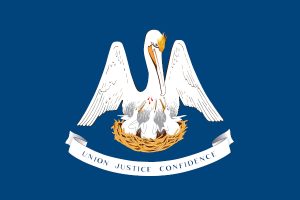Louisiana Court Dismissing Part of FSC Case Isn’t a Shock, Or the End of the Story
 NEW ORLEANS, La. – When U.S. District Judge Susie Morgan granted the state’s motion to dismiss the Free Speech Coalition lawsuit challenging §2800.29 – a section of Louisiana law enacted earlier this year that creates liability for “publishers and distributors of material harmful to minors” – her ruling should not have come as any surprise.
NEW ORLEANS, La. – When U.S. District Judge Susie Morgan granted the state’s motion to dismiss the Free Speech Coalition lawsuit challenging §2800.29 – a section of Louisiana law enacted earlier this year that creates liability for “publishers and distributors of material harmful to minors” – her ruling should not have come as any surprise.
As with the FSC’s lawsuit dismissed by a Utah court, Morgan found none of the state officials named as defendants in the lawsuit (FSC v. LeBlanc) “has a particular duty to enforce the Act or a demonstrated willingness to enforce it.”
Morgan’s decision cites several cases involving similar statutes which create a private right of action, noting the consistency with which other courts have ruled that pre-enforcement challenges of such statutes can’t be sustained against state officials like James LeBlanc, the Secretary of the Louisiana Department of Public Safety and Corrections named in the FSC lawsuit.
The decision addresses each of the named defendants in the same fashion. In finding that Jay Dardenne, the Commissioner of the Louisiana Division of Administration, has no particular duty to enforce the law, Morgan noted that while the plaintiffs “allege Commissioner Dardenne has some connection with the enforcement of [the Act] because the state division he leads administers LA Wallet and he has recognized ‘LA Wallet as [Louisiana’s] only qualifying ‘digitized identification card,” these facts still do not mean the plaintiffs met their burden of showing Dardenne has a particular duty to enforce the Act.
“The best argument that Commissioner Dardenne in effect enforces the Act would be to show that LA Wallet is, in reality, the only acceptable age verification method to comply with the Act and that Commissioner Dardenne does not permit commercial entities and individuals providing material the Act defines as ‘harmful to minors,’ such as the Plaintiffs, to use it,” Morgan wrote. “Plaintiffs do not make this argument and, if they did, it would not be successful. In a declaration, Michael Dupree, Director of the Public Protection Division of the Louisiana Department of Justice, stated that he knows of at least three commercial entities that use LA Wallet to comply with the age-verification requirements of the Act through the use of AllPassTrust. Plaintiffs do not dispute this.”
The requirement to show a particular duty to enforce the law is a difficult barrier to clear, as observed by attorney Larry Walters of FirstAmendment.com when offering comment to YNOT on a Texas law that creates a similar right of civil action in relation to certain obscenity offenses.
“The problem you run into with challenging this law, and the many other age verification laws making the rounds currently, is who can mount a challenge?” Walters said. “The challenger must have legal standing to file suit or raise the constitutionality of the law… as a defense. So, until somebody is sued for damages, a court will not likely have an opportunity to rule on the constitutional issues.”
While disappointing to the plaintiffs, Morgan’s ruling does not entirely settle the matter, as the FSC’s challenge to the portion of Louisiana’s law that the state’s officials unquestionably have a duty to enforce is ongoing – and has a good chance of succeeding on the merits, as FSC has noted in public comments since Morgan’s decision was issued.
FSC's suit against the Attorney General will proceed, though the judge dismissed a part of the suit that allows citizens to sue porn sites, saying that provision can't be challenged until someone actually brings a suit.
The law remains unconstitutional.https://t.co/5U67EcqSq4
— Free Speech Coalition (@FSCArmy) October 4, 2023
Ultimately, if the law which the state does have a duty to enforce fails to survive court scrutiny, it’s hard to see how a court would conclude the portion creating a private right to action would remain in force. Strange things have been happening in the Fifth Circuit (of which Louisiana is a part) lately though, rendering the always tricky, unreliable task of reading judicial tea leaves that much more difficult.













